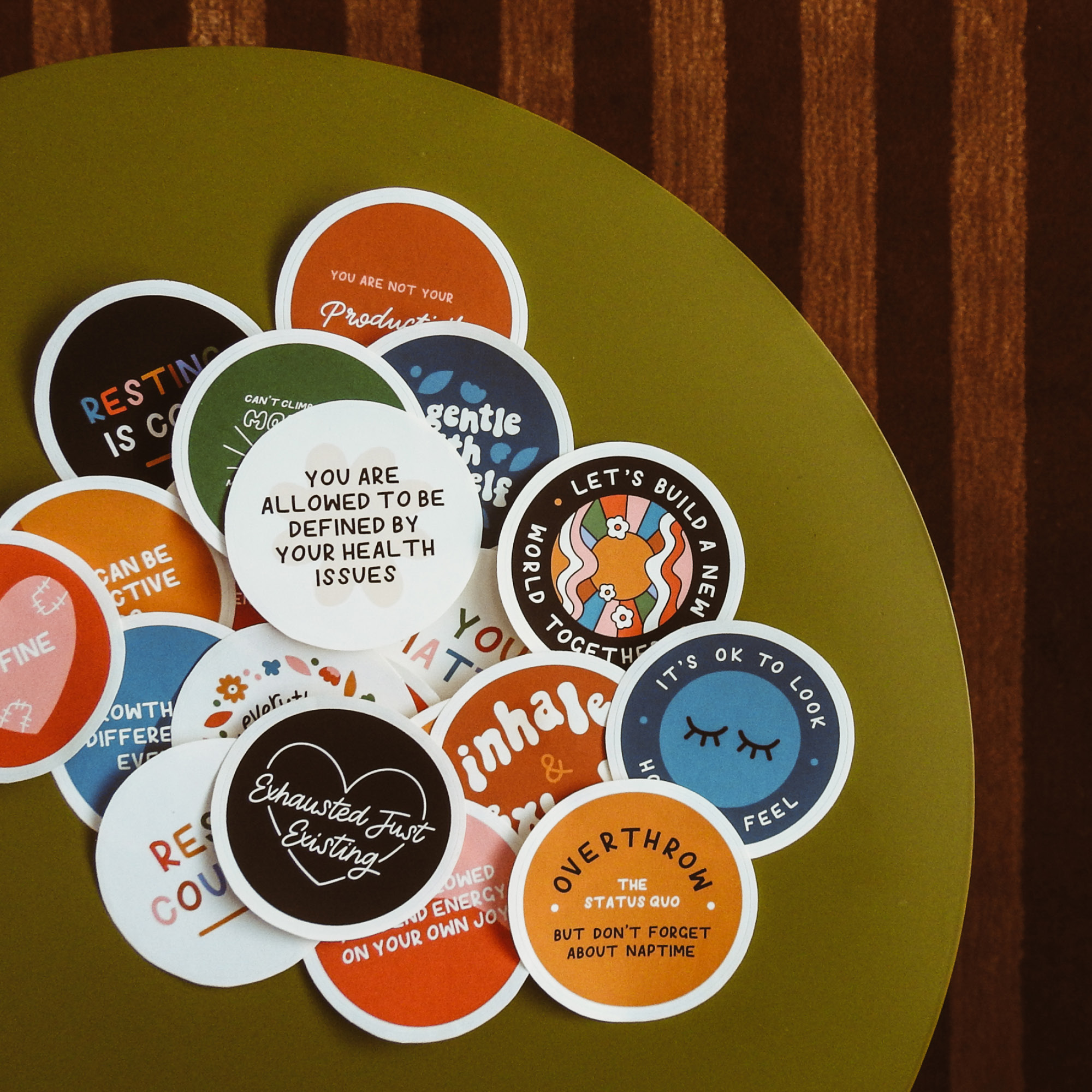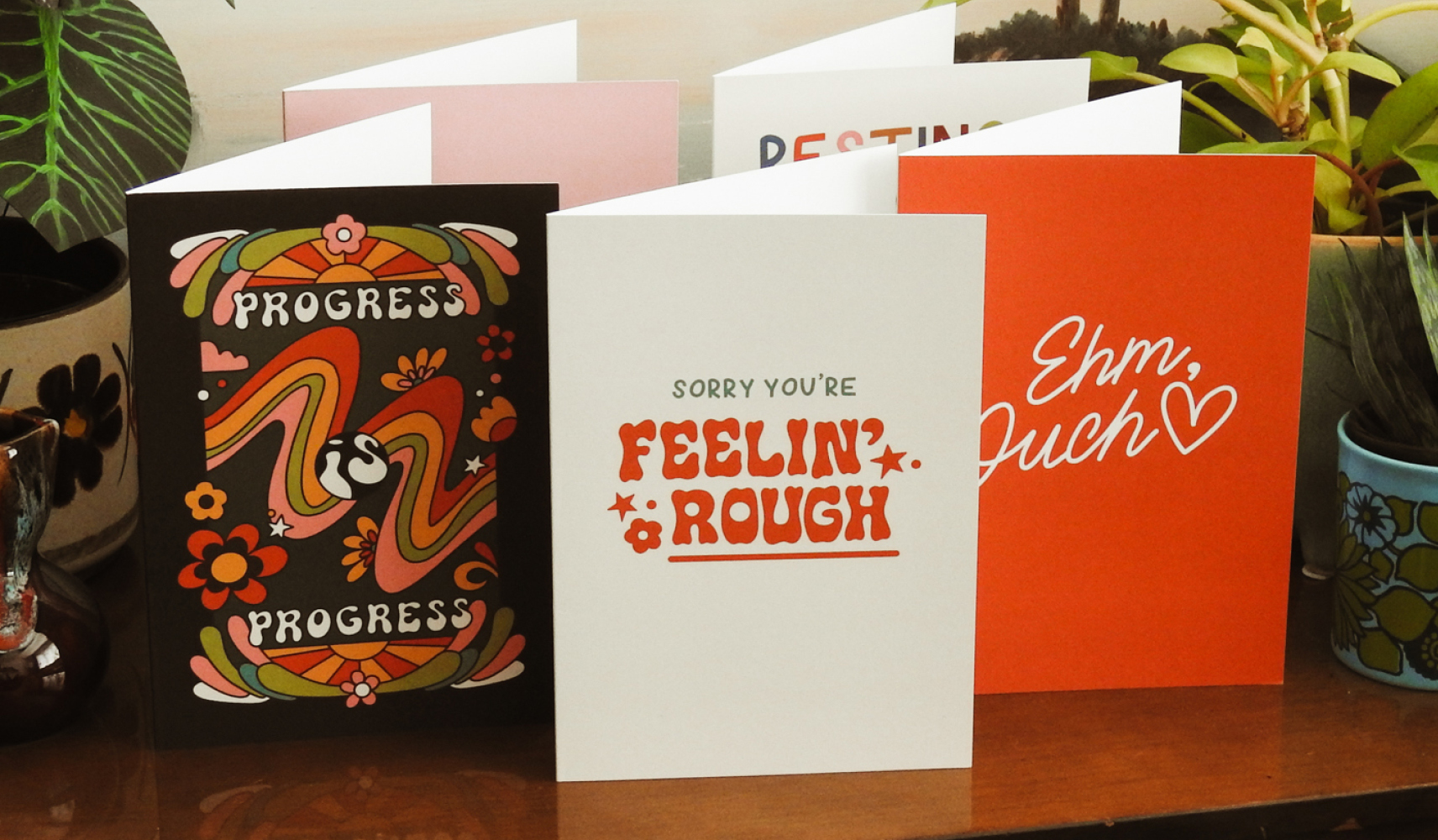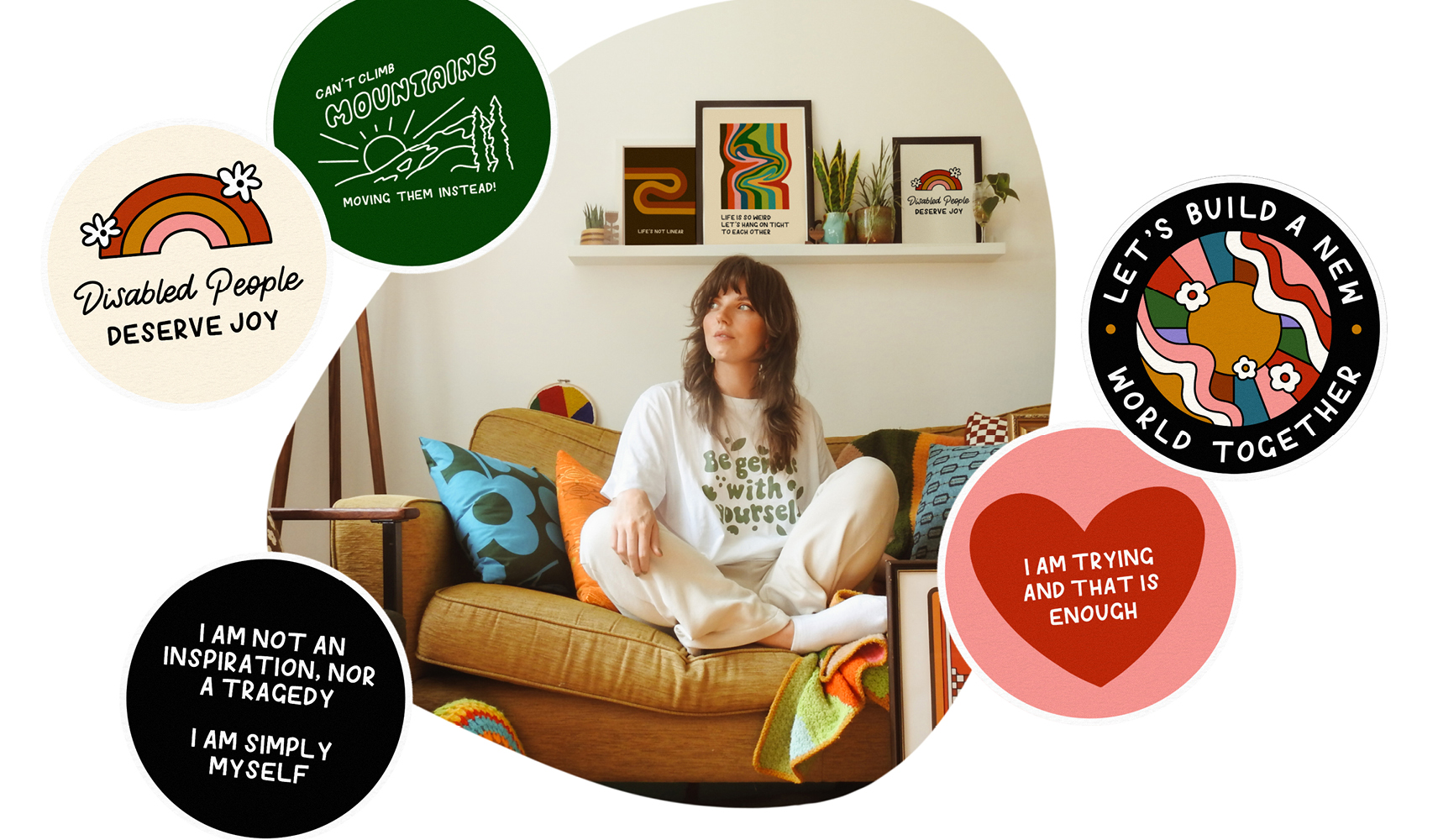Allclusive Futures: Why it’s time for a shakeup in the Gift and Greetings Industry
 Jenny McGibbon - This Thing They Call Recovery
Jenny McGibbon - This Thing They Call Recovery The expectation for brands and retailers to drive responsive and authentic diversity and inclusion strategies is greater than ever. This approach is not just about exclusive products or one-off campaigns, it’s making inclusion a priority in the early stages of every design, marketing, and business process. With this in mind, we are also taking steps to ensure allclusivity is at the forefront of our minds when creating our trend forecasts.
For our upcoming forecast for the gift and greetings industry, we invited Graphic Designer and Disability Advocate Jenny McGibbon to our recent trend panel. This Thing They Call Recovery is a brand Jenny designed to help challenge public perceptions of disability, spark complex conversations and push for action. Jenny herself is disabled, chronically sick and autistic. Based on her own lived experience, her colourful graphic designs focus on cultivating community and conversation above all else.
We spoke to Jenny about her experiences and what brands and retailers in the Gift and Greetings industry can be doing to make allclusivity a priority.
“Chronic illness and disability can be overwhelming and isolating, but there can be joy in there as well. It’s important that is also reflected in the messaging, products and services we’re surrounded by.”

Could you please tell us a little bit about your story and how you came to your role as an advocate for people with chronic illness and disability?
I was one of those “complex cases”, labeled a mystery by medical professionals. At 16 I found myself in and out of hospital almost weekly. I couldn’t relate to my peers anymore, and suddenly found myself in this new medical space. The thing is, I felt like I couldn’t relate to anyone there either.
Everything was cold and clinical. There was never information about living with illness, only curing it. But what happens when there is no cure, or even treatment, for your condition?
I started a blog, “This Thing They Call Recovery”, with the aim of breaking down the taboo of life with chronic illness as a young adult. It’s since flourished into my freelance business, helping to ensure no one feels like they’re dealing with health issues alone.
I’m trying to help get the word out: Chronic illness and disability can look like anything, happen to anyone, and everyone deserves to feel supported.
You spoke extremely eloquently at our recent Future of Celebrations panel about the gaps and issues you yourself, and others experience within the Gift and Greetings industry. Can you give us some examples?
I’m a firm believer that disabled people don’t just have needs. Like anyone else, we also have preferences, desires, aspirations and a sense of self. We’re individuals. And we deserve products and services that keep that in mind.
Perhaps not strictly gifting, but let’s take a shower stool as an example. I’ve used one for most of my twenties. If I want a stool for any other area of my home, I have literally thousands of different options, colours and styles. Suddenly if I need one that can withstand getting wet, I have one option. It’s white and hospital blue, it’s clunky, and a bit of an eyesore.
“It speaks to the idea that when it comes to products aimed at sick and disabled people, design is almost never considered. Industries assume we want to hide away this part of ourselves. But I don’t anymore.”

How could brands and retailers be doing better?
I think it’s high time there was a shake-up in how we think of “Get Well Soon” and “Thinking Of You”. Often greetings in these categories are intended to be open-ended, applicable to a variety of situations. In theory, I get it. In practice, however, it’s saying so little it’s almost not saying anything at all.
When you’re in a tough situation without a definitive end point, people are often unsure of how to help or what to say. The Gift and Greetings industry could be doing a lot more to help people figure that out.
It doesn’t always need to be a daunting sit-down conversation, I promise! Let’s normalise it. We don’t need to soften these things all the time with a fine script font, a muted palette, and a gentle floral watercolour. We need more variety and honest connection. When was the last time there was a single aesthetic to “Happy Birthday”?
How can brands be more inclusive in their working practices?
A lot of it, I believe, comes down to a lack of diversity in the teams. Diverse teams will always produce more well-rounded ideas. Disabled and chronically sick people are often locked out of employment due to ableist assumptions. We need more people with varied lived experiences involved in the creation of products and messaging. And it’s imperative that goes beyond white, slim, cis disabled people like me.
We’re not a monolith. It may be a niche market but that doesn’t mean it’s a small one. We’re a varied and valuable bunch. There are millions upon millions of us. It’s time “Get Well Soon” and “Thinking Of You” were considered varied and valuable too.
“Assumptions are made about what chronically sick and disabled people need or want. We deserve products that speak to our experiences and fulfill our needs – of course. But we also deserve nice things that do that! Disabled people deserve joyful design too.”

How do you work with brands and where can we find you?
I love my job because it’s so varied. I work with businesses, organisations and charities across various continents. Sometimes it’s licensing existing designs, sometimes it’s creating bespoke pieces, and sometimes it’s workshopping around inclusive/accessible work practices. The topics of chronic illness, disability, and access are gaining traction and will only increase over time – as they should! Anyone interested in driving that forward together can find me at www.thisthingtheycallrecovery.com.
As part of TrendBible’s ongoing commitment to our internal Framework for Fairness initiative, we as a business are taking steps to interrogate and improve our ways of working to ensure allclusivity is at the forefront of our minds when creating our trend forecasts. If your business needs extra support navigating the intricacies of diversity and inclusion our trend consultants can help. Get in touch to book in a discovery call with our team.